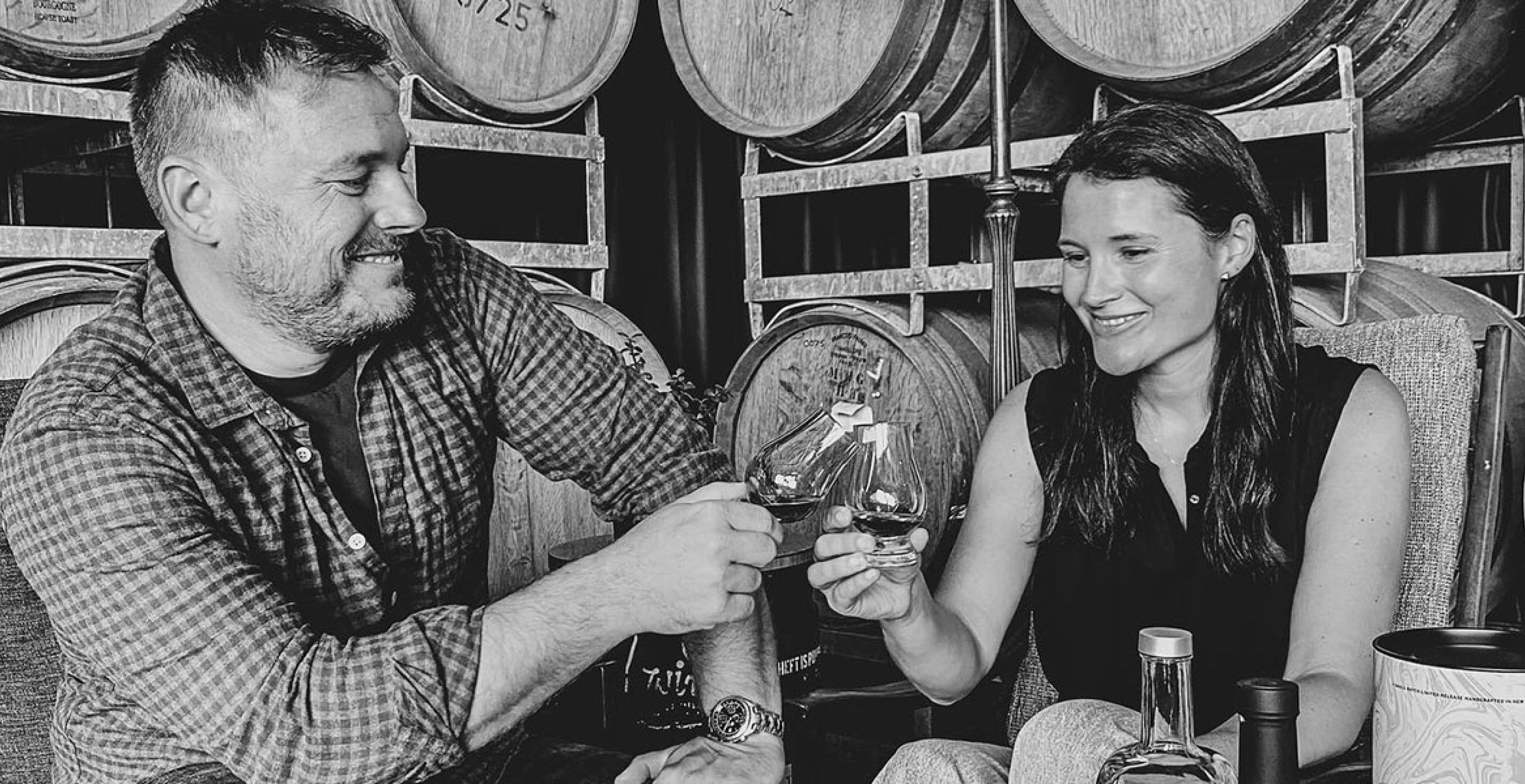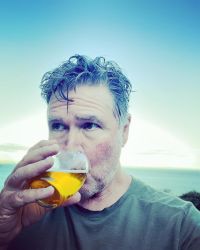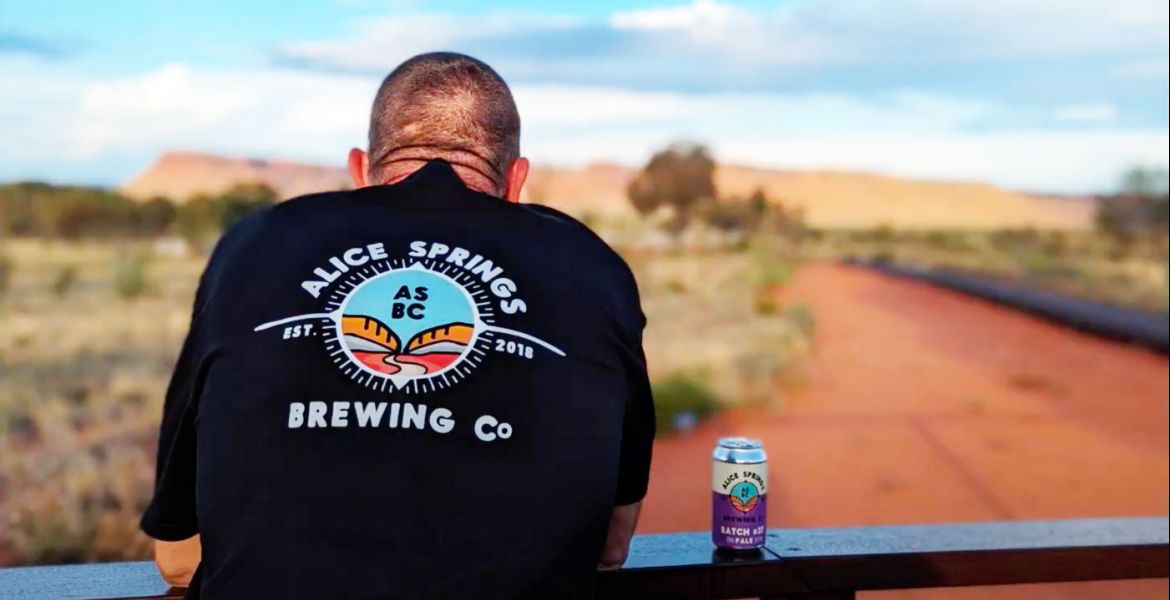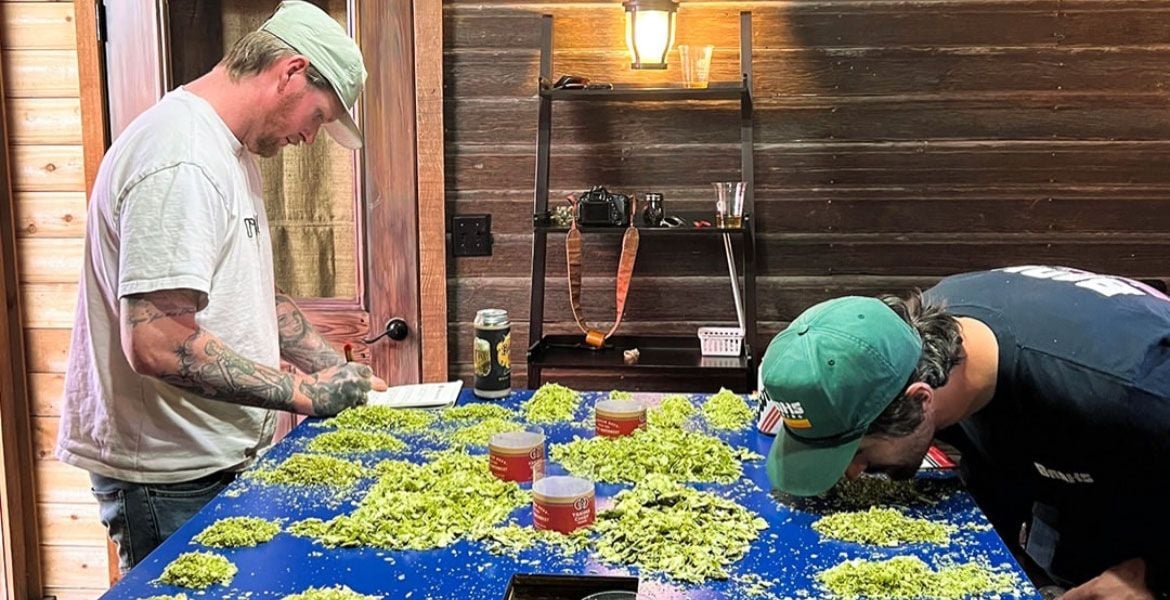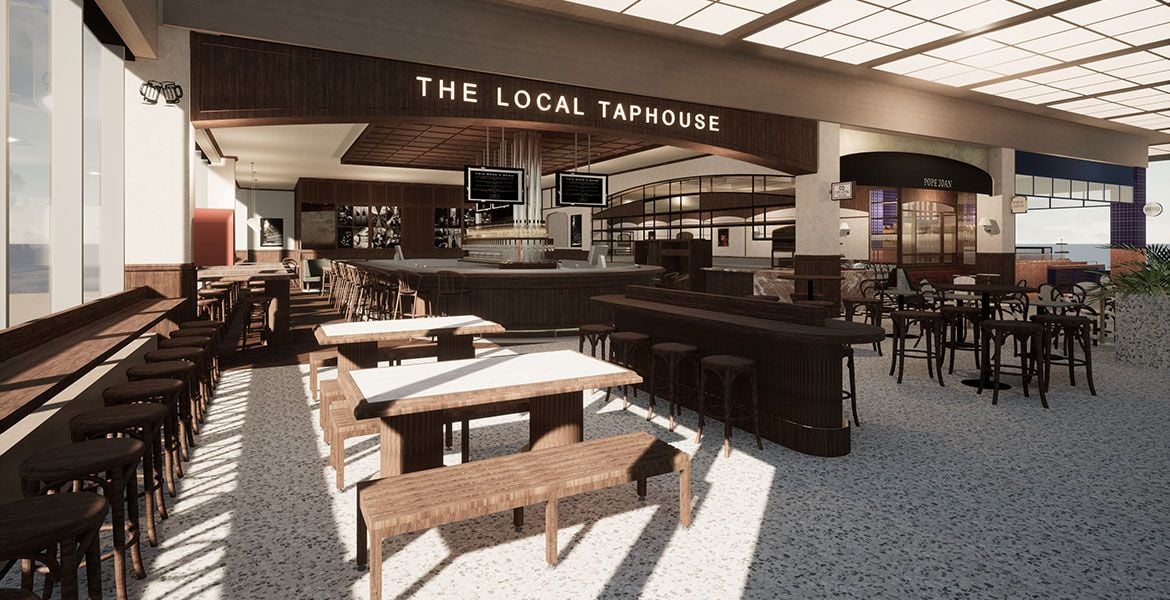8 Wired beers have been enjoyed across Australia for well over a decade now. After the brewery claimed both top trophies at the 2023 New Zealand Beer Awards, Pursuit Of Hoppiness editor Michael Donaldson chatted to founder Søren Eriksen about their two Champion Brewery triumphs 12 years apart, barrels, growth and more.
No New Zealand beer gets as much hands-on treatment as 8 Wired’s Wild Feijoa Sour Ale.
This year’s New Zealand Beer Awards were a triumph for 8 Wired and their iconic beer with the Warkworth brewery, an hour north of Auckland, crowned overall champion and Wild Feijoa 2022 named champion beer.
Based on the sheer volume of manual labour alone, Wild Feijoa is a worthy champion.
Every year, 8 Wired takes a tonne of feijoas from certified organic grower Quinta in Matakana. Those feijoas are hand-picked and then they are hand-cut at the brewery, the staff spending a day on that task alone.
The cut feijoas are put into tanks with a barrel-aged base beer blended from hand-selected barrels. The beer then sits on feijoas for another year.
And then … the batch is hand-bottled, with at least 5,000 bottles filled and capped by hand on a four-head filler that feels like it came from the 1990s. With 8 Wired having replaced a bottling line with a canning line a few years ago, the manual bottling is reserved for the barrel-aged sour beers.
Brewery founder Søren Eriksen (pictured above with wife Monique) says bottling a batch takes two days all up – “but it’s OK, we do it on quiet days”.
The amount of work is ridiculous and the fact you can buy a bottle of this gorgeous, much-loved beer for NZD $16.99 (usually around AUD $25 by the time it hits Aussie stores) almost feels wrong. And many believe the 2022 batch of Wild Feijoa, the 10th vintage, is the best yet.
“They all taste very similar to me,” Søren says. “The process has gotten very streamlined, but this year’s batch may have been a little sweeter.”
The reason for that, he thinks, is the size of the feijoas. Larger ones have less skin-to-pulp ratio so the batch is not as perceived as so tannic.
“Sometimes the fruit is really small, so there’s a larger proportion of skin which will make it a big rougher maybe.”
And there’s also what nature throws at the beer.
“It’s all very natural, all organic, and much of the flavour depends on the weather," Søren says. "One year Quinta only harvested three tonnes and we take one tonne, so that year we took a third of their production. Other years they produce up to 20 tonnes.”
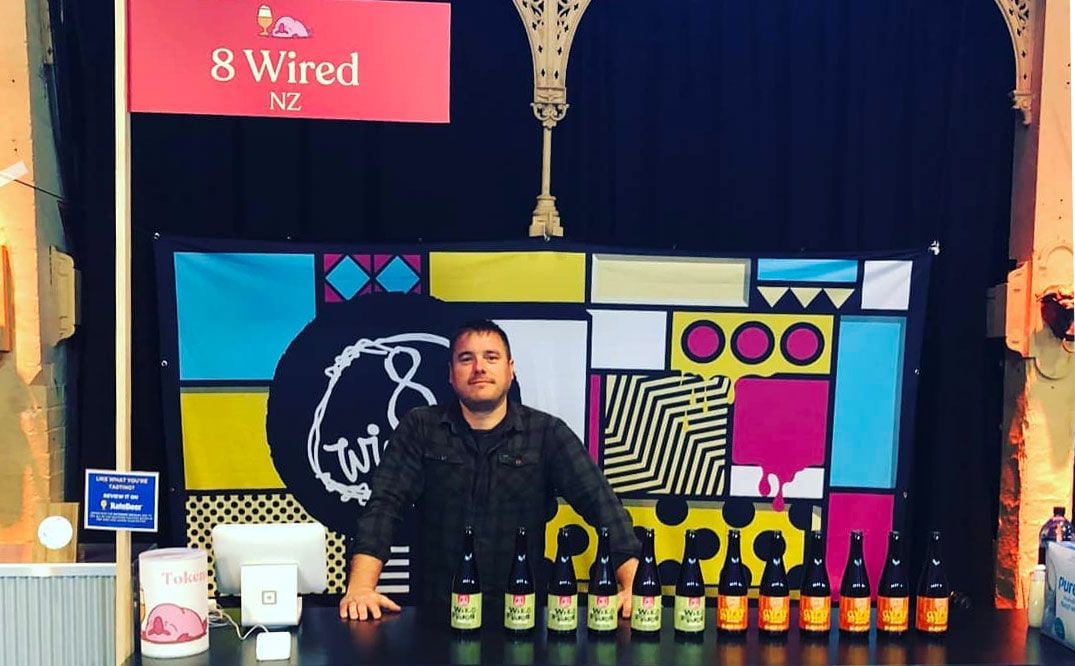
The first Wild Feijoa release was something of a happy accident: it was meant to be Wild Savvy, a beer-wine hybrid that 8 Wired planned to create as a collaboration with a local winery when they were still based in Blenheim and Søren was moonlighting as 8 Wired while working as a brewer at Renaissance.
When the wild-fermented, barrel-aged sauvignon blanc wine wasn’t ready in time, he decided to try another fruit and opted for feijoa.
That first Wild Feijoa was built on a tripel base, soured in barrels, and weighed in at 9.5 percent ABV. The alcohol content gradually came down with vintages – to 8.7 percent, then 7.5 percent – and has hovered around 6.5 percent for the past seven years.
The base beer is now more consistent, the same one 8 Wired use for all their fruited sours, and these days the feijoas don’t go into the barrels – “We stopped putting fruit in barrels because we couldn’t get the fruit out and couldn’t re-use the barrels,” he explains – instead the fruit goes into tanks with the blended beer.
“The beer has changed a lot from the first one. The level of sourness hasn’t changed; you can’t get it more sour but it used to be a lot more funky. It’s a lot cleaner now than it used to be, and there would have been some acetic acid in the past which is not there because we’re better at making it, we’ve got the process down better.”
Each vintage is named for the year the feijoas are picked, rather than the year the beer is bottled, hence this year’s release being the 2022.
Two Titles 12 Years Apart
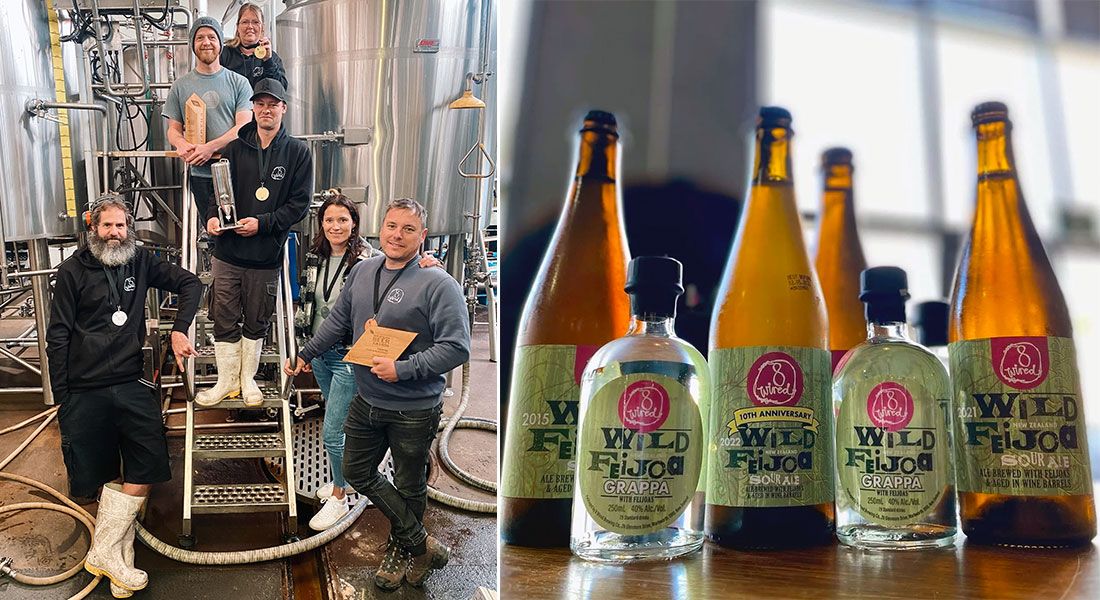
8 Wired is just the second brewery to win two “champion” brewery crowns at the New Zealand Beer Awards, following in the footsteps of Tuatara.
In 2011, 8 Wired won the title on the back of eight beers (everything they had at the time) and won two beer trophies – for Big Smoke porter and a barrel-aged version of Big Smoke – plus a gold for the much-loved Batch 18 barrel-aged imperial stout. Hopwired, Tall Poppy, iStout, Saison Sauvin and Festivus won minor medals to complete a perfect haul.
In 2023, they were perfect again, with five from five: gold and a trophy to Wild Feijoa, gold for Oude Imperial, silvers to Baltic Smoke and iStout, and a bronze for Brave Old World – Scotch Ale.
In 2011, Søren entered every beer had. This year he was more judicious, noting he’d “read the rule book”** and entering beers that would give him a chance at the Champion Brewery crown.
“It was strategic. In the past we might have entered 20 beers and you can’t win the whole thing with ‘anything goes’ – plus it’s expensive to enter. I knew if I entered five, I would have a good chance of five gold medals.”
The victories also bookend the boom years of the industry, with the 2012 to 2022 period defining a decade of extreme growth.
“I think 2011 was when everything kicked off in a major way," Søren says. "When we started there were maybe only 50 breweries and here we are now at a bit of a crossroads of an industry that has grown tremendously.
“At the beginning, it went really fast, and every year we’ve grown. It was a bit flat in the middle of that era but in the past three years we’ve actually grown about 50 percent – but that’s because we put a lot of investment into our own sales team.”
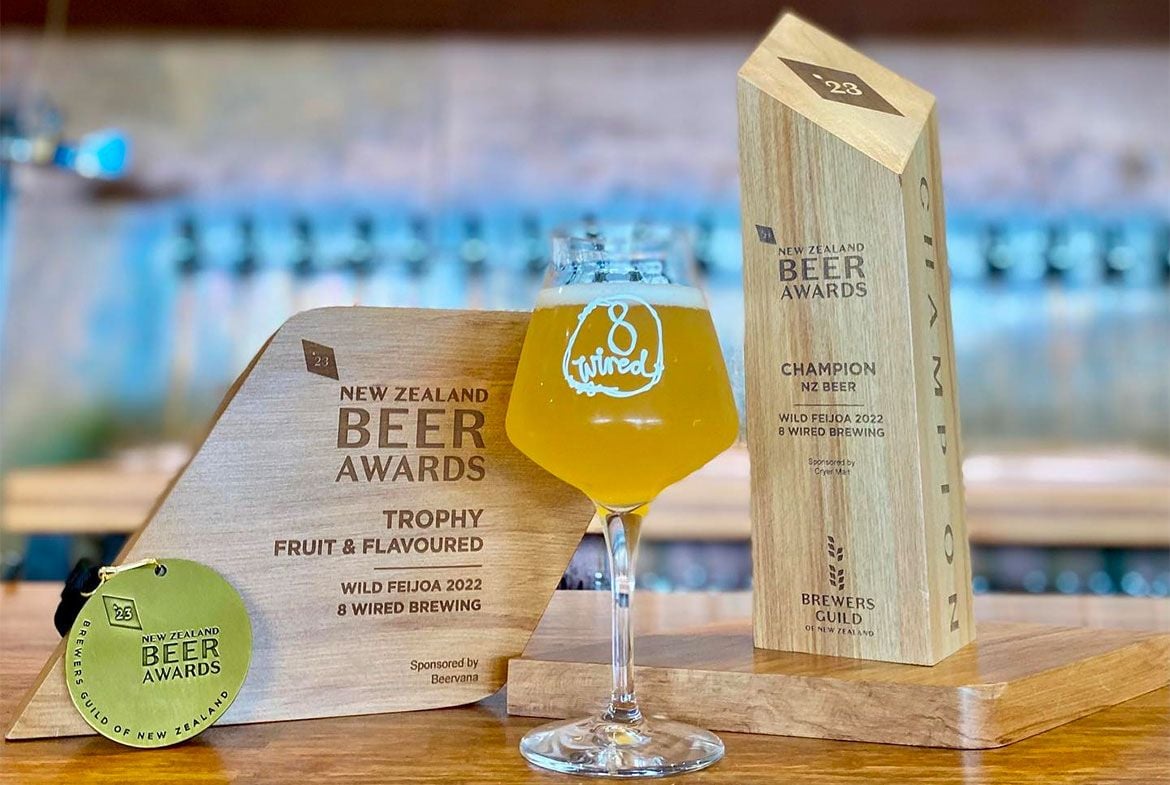
8 Wired were previously with distributor Quench*, and when they went bust 8 Wired “lost a bit of money” – but they’d already been actively planning to exit and set up their own team so didn’t take a huge hit. The past three years have seen them open their Barrelworks venue in Matakana, which also helped growth as it now accounts for around 15 percent of 8 Wired’s production.
From a one-man operation moonlighting at Renaissance Brewing in Blenheim in 2011, they are now 15-strong, including four in sales. Yet the one area in which they haven’t grown is in barrels. For a brewery recognised for its barrel program, they are using fewer than they did in Blenheim.
“We had more barrels when we moved up here in 2015 but that’s because we got given all these barrels from the wineries and they just kept building up,” Søren says, admitting to being “a bit slack lately”, and has struggled to find the time to take beer out of barrels. But that’s partly market-driven.
“Sales are sluggish in that market, people spending $20 on a bottle of beer is getting more rare," he says.
“We are also selling less to the US so it’s getting harder to sell a whole batch. We get through it eventually – and the good thing is that kind of beer stays good forever.”
One thing Søren would like to do is put these more esoteric beers into slimline cans as Rodenbach do, “but we haven’t really figured out the hardware yet.”
Other changes to 8 Wired over the years are the introduction, and then paring back, of their hazy offerings.
“We don’t do as many as we used to and, with our seasonal IPA releases, we now alternate between a West Coast IPA and a hazy – so every second one is hazy. A few years ago, they would have mainly been hazies.”
There’s nearly always a smoked beer on offer, the latest being the hugely popular Baltic Smoke. And for fans of the once core-range Big Smoke, there is good news: “Big Smoke will get a return at some point.”
The legendary NZ-hopped IPA, Hopwired, remains a core range beer but has moved from 500ml bottles to 330ml six-packs in glass, and is now sold only in 440ml singles.
Along the way, they've kept that price down compared with seasonal beers of similar strength; Hopwired retails at what seems like a bargain $6.99. When you take out packaging, he says it’s the equivalent of $26 six-pack. And because, unlike seasonals which need new labels and a heap of paperwork to get into supermarkets, Hopwired doesn’t have the same costs embedded in it.
Looking ahead, there is room to grow 8 Wired further but he’s not sure he wants to.
“We have capacity to double production," he says, "but if we doubled in size it would be a lot of stress in terms of running shifts – you’d need double shifts, and there would be no room for error.
"And then there’s packaging, storage … it would be good to grow a bit, maybe 50 percent more to get some economies of scale, but any more than that would get uncomfortable.”
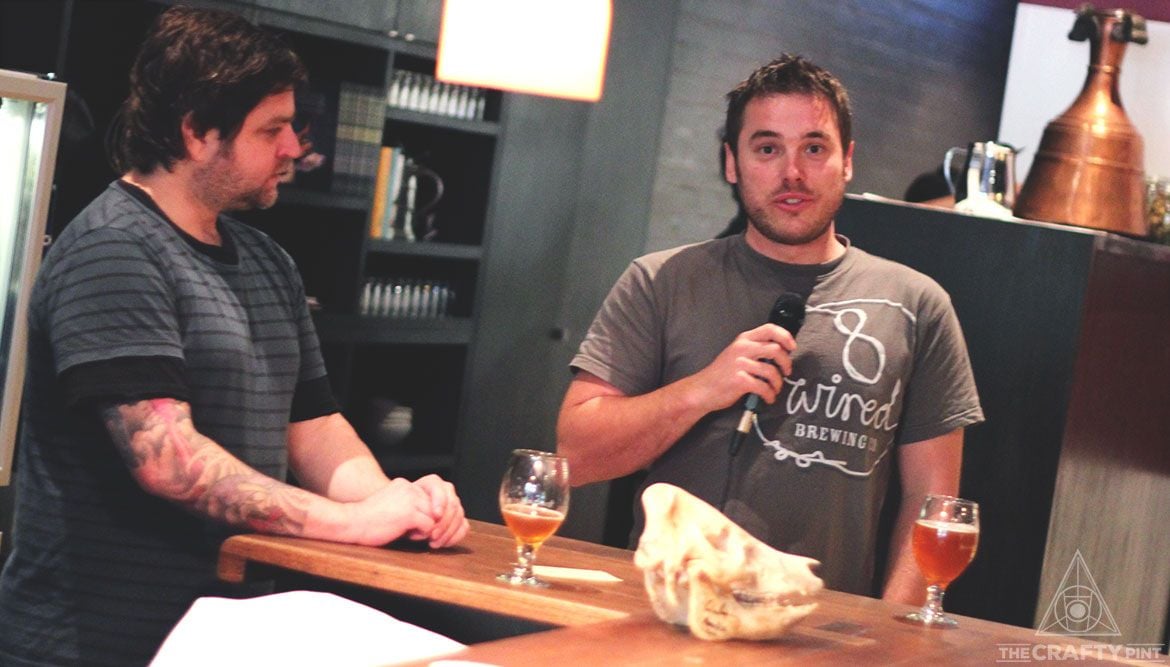
The Thai Connection
The political situation in Thailand brought an unlikely customer to 8 Wired’s door: Thai brewery Team Alpha have just taken delivery of their first batch of contract-brewed beer. 8 Wired had offered contract brewing in the past but Søren says their smaller scale – compared with bStudio and Steam – makes it expensive, but money doesn’t seem an object for Team Alpha.
And there’s a reason behind what might seem to be the madness of freighting beer from New Zealand.
Under just-ousted Prime Minister Prayuth Chanocha's military-backed government, it was next to impossible to start up a small brewery in Thailand, where a powerful duopoly holds sway.
Until recently, anyone seeking a license to open a microbrewery had to show the capacity to make 100,000 litres of beer and have 10 million baht (around AUD $430,000) in registered capital. While the production capacity and capital requirements have been lifted, new walls were erected in their place. For example, brewers must conduct environmental impact assessments but are not eligible to do so unless they produce more than 7 million litres annually – a regulation that independent brewers say only major players can meet. Homebrewing remains illegal.
Taopiphop Limjittrakorn, a homebrewer and Move Forward parliamentarian, says the market is stacked in favour of the country's two biggest brewers, ThaiBev and Boon Rawd Brewery, the makers of Chang and Singha beers, respectively. But small brewers have found ways to get around the strict brewing laws: using facilities in Cambodia, Singapore, Vietnam and elsewhere, and then importing their products to sell them legally in Thailand.
Team Alpha decided to go to New Zealand instead, helped in part by a free trade agreement between New Zealand and Thailand.
“It’s easier to do it in Cambodia but apparently the quality is not as good over there,” Søren says. “We’ve only done one so far but it might turn into a thing.
“They are very small but the owners have a resort island where they sell most of the beer. Most of it was kegs and a few cans.”
* 8 Wired beers are brought into Australia by Modern Liquid, which was previously Better Beer Imports.
** The NZ Champion Brewery is based on consistency across entries. Points are awarded to each medal-winning beer (gold = 3, silver = 2, bronze = 1). These are tallied and divided by the brewery's total number of entries. Consideration is given to entries from the entrants that have been awarded trophies.




